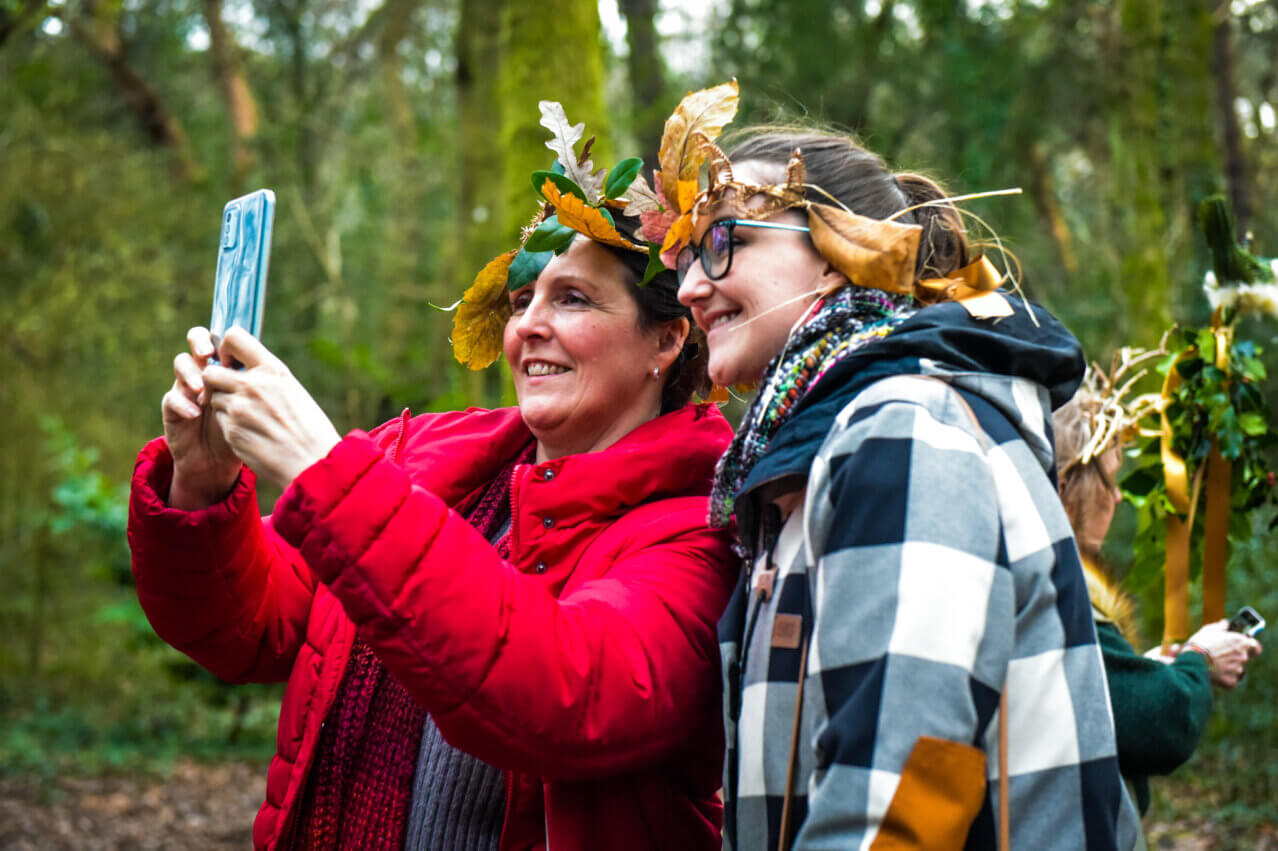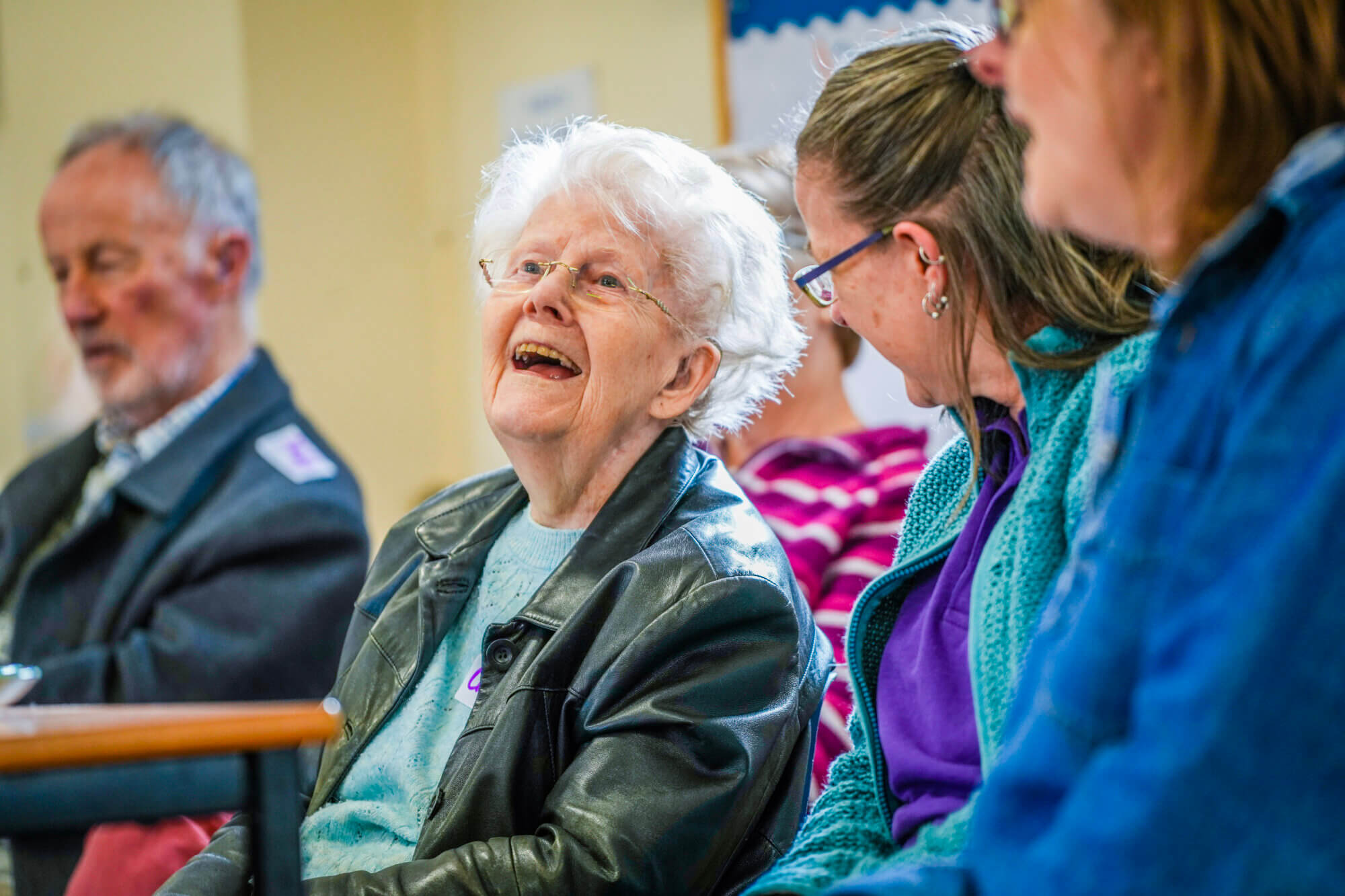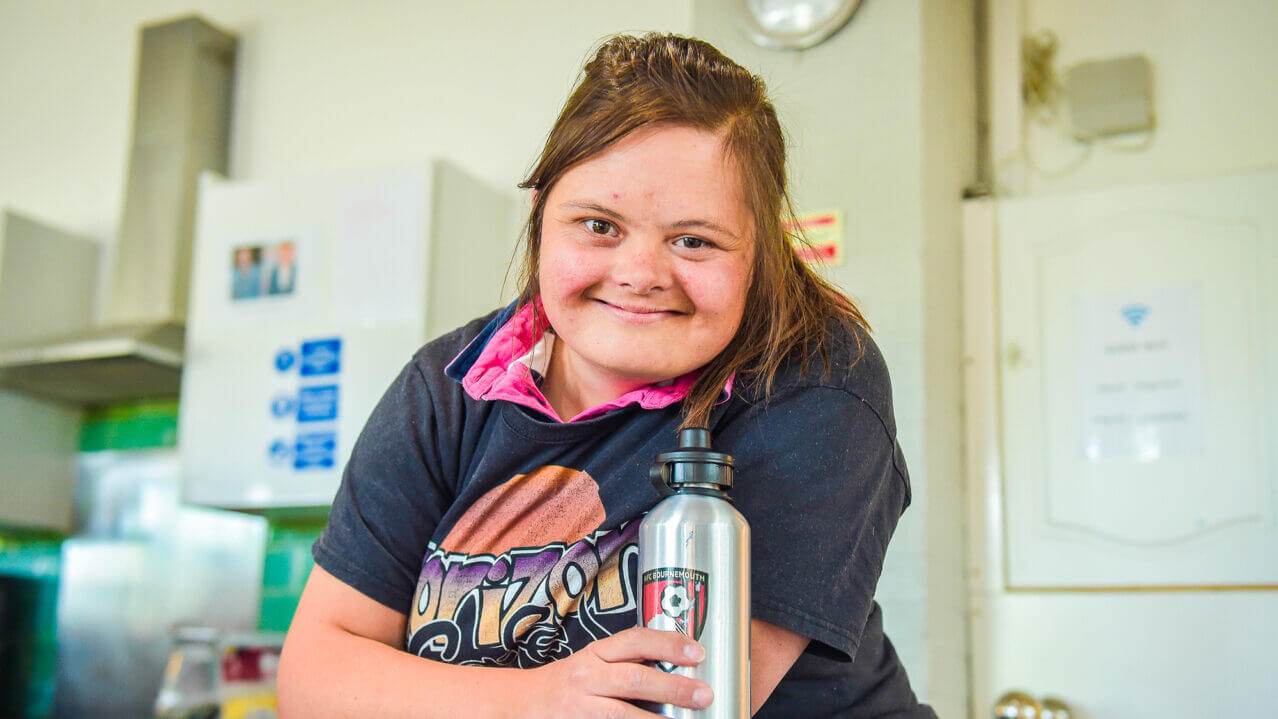To answer the most common questions we receive and help guide you through each stage, we have created 4 sections below
1. Pre-Application – Before You Apply
2. Filling in your Application
3. During the Application Process
4. Post-Application – After the Decision
1. Pre-Application – Before You Apply
-
We welcome applications from a wide range of registered charities and local impact organisations working to improve the lives of people within our Area of Benefit: Bournemouth, Christchurch, Poole, Purbeck and East Dorset.
Organisations that can apply:
- Registered Charities (including Charitable Incorporated Organisations – CIOs)
- Constituted community/voluntary groups and associations
- Faith organisations (for activities open to the wider community)
- State schools (only for non-statutory funded projects)
- Housing Associations (Industrial and Provident Societies)
- CICs and social enterprises limited by guarantee with:
- A not-for-profit clause
- Charitable or social objectives
To be eligible, you must:
- Be located in or serving people in our Area of Benefit
- Have at least 3 unrelated trustees/directors
- Have a bank account with 2 unrelated signatories
- Check out Full eligibility criteria and our Application Policy before applying.
- Submit your application before the deadline. We strongly advise applicants to apply early so we can ensure that all the documentation has been received.
- Hold appropriate governance and if relevant, safeguarding policies.
- Provide a clear case for support
- For Capital Grants Programme, have raised or be actively raising at least 25% of the total project costs
- Small Grants Programme under £5,000 doesn’t require matched funding
Types of projects or organisations which are not eligible:
- Animal welfare organisations unless for assistance therapy
- One-off events with limited longer-term benefit
- Applications made by individuals, except in exceptional circumstances (by invitation)
- Where the application is to repay a loan or previous commitment
- Retrospective funding – grants for work that has already started or been completed
- Religious activities from faith based organisations. However we may contribute to repairs of faith based buildings where there is a benefit to the wider community
- Where the application is purely concerned with the environment and not linked to local community-based sustainability efforts
- Where the application is from an independent or fee paying school, unless the application is to assist those who come from disadvantaged backgrounds
- Where the application is from a local authority school, unless the application is to meet expenditure which is clearly outside of the scope of funding for which the State should be responsible. Additional factors such as opening up community engagement accompanied by higher than average levels of Pupil Premium and/ or SEND provision
- Public bodies to carry out their statutory obligations
- Projects for items/ refurbishment which are the responsibility of the applicant’s landlord
- Projects where statutory funding has been withdrawn and/or where the proposed project is duplicating an existing service
- Swimming pools, unless for specific therapeutic reasons
- To fund research or research infrastructure including medical research
- Towards the cost of vehicles e.g. mini-buses and the like (unless by exception)
- To fund facilities outside of the Area of Benefit even where these may be used by persons residing within the Area
- Where the applicant has not yet made efforts to raise some of the monies required (depending on the grant’s programme)
-
Applications for the Small Grants and Capital Grants programmes are now open and will close at midnight on 31 August 2025.
- Small Grants decisions: Expected by late October/early November 2025
- Capital Grants decisions: Expected by late November/early December 2025
Please note that we are unable to fund any part of the project which starts before the Trust’s decision is made. Also for capital grants, any funds spent before the date of the Trustees’ decision cannot be used towards meeting the matched funding requirements.
-
All applications must be submitted via our online form: Application Form
We do not accept applications by email or post. If you’re unable to complete the form online, please email us at info@talbotvillagetrust.org to arrange a conversation.
-
We fund projects that benefit people living in our Area of Benefit (AOB), even if your organisation is based elsewhere.
If your project also operates outside of our Area of Benefit, you may only apply for the proportion of the project that takes place within our designated area.
Please note that if funded, you will be required to report specifically on the outcomes and impact of the portion of the project delivered within our Area of Benefit.
Example:
- Organisation A is based in Dorchester but delivers the same youth mentoring programme in Poole and Weymouth. They are eligible to apply for the costs associated with the Poole-based part of the project only – including staffing costs for employees based in Dorchester who are fully managing the Poole delivery. E.g. If staff manage 50% of the Poole element and 50% of the Weymouth, we can only consider funding the proportion of staffing costs that directly relate to the work within our Area of Benefit (Poole in this example). Their budget should be reflecting the costs of their activities in Poole only.
- Organisation B is based in Bournemouth but delivers all of its services in Dorchester. As there is no project activity taking place within our Area of Benefit, they would not be eligible to apply.
- Organisation C is based in London and runs a campaign with no targeted delivery or measurable impact in our Area of Benefit. They would not be eligible to apply.
You can check the map of our Area of Benefit here: View Area of Benefit Map
-
1. SMALL GRANTS PROGRAMME
- Applications for up to £5,000
- Award can be split across 2 years if needed
- Total budget available: £100,000
- For grassroots and / or local impact organisations with an annual turnover under £250,000
Supports:
- Core/operating costs
- Project costs
- Small capital items (e.g., equipment, minor repairs)
- No match funding required
2. CAPITAL GRANTS PROGRAMME
- Applications for projects over £10,000
- Total budget available: £250,000
- Open to organisations of any size who can demonstrate that the application forms part of the strategic plans of the organisation
- Must provide most recent signed accounts
- Must provide evidence that the organisations secured at least 25% match funding at the time of the draw down
Supports:
- Purchase, refurbishment or repair of buildings or physical spaces, investment in physical or IT assets, accessibility improvements
-
Eligible capital costs should demonstrate public benefit and could include:
- Purchase of land or property
- Refurbishment, renovation or essential repairs of buildings
- Investment in physical or IT assets
- Accessibility improvements
All capital projects should be integrated into your wider organisational plans.
-
We understand that some organisations may find their current funding needs are not fully aligned with the structure or priorities of our new programmes. We know this may be disappointing, and want to reassure you that these programmes will be reviewed as we move forward.
We will share full details about future opportunities on our website and through our email newsletter, so please make sure you’re subscribed to stay informed.
-
Yes, previous grantees can apply. However, we will ask for a final impact report from your previous grant if it hasn’t already been submitted.
We are unable to fund projects currently covered by our grant.
Example:
- Organisation A received a grant from us to run a community café from January 2024 to December 2025. They would be eligible to apply for new funding to support the café’s operations from January 2026 onwards.
- Organisation B received a grant to deliver a mentoring programme from April 2024 to March 2026. They submit a new application in July 2025 asking for additional support for the same programme starting January 2026. As that overlaps with the current grant, we would not be able to fund the duplicated period (Jan-March 2026). If they submit the application, it has to cover a period from April 2026 onwards.
-
If you’ve received feedback from us on a previous application, we encourage you to take that into account and address any issues or concerns that were raised. If you can evidence that those areas have been strengthened or resolved, we’d be very happy to consider a new application.
We value organisations that are reflective and responsive, and previous funding (or an unsuccessful application) does not prevent you from being considered again.
-
You need to provide:
- Project proposal: Need, beneficiaries, delivery plan, impact and monitoring
- Budget breakdown: Including match funding (for Capital grants)
Documents required:
- Your organisation’s governing document (e.g., constitution or articles of association)
- A clear and up-to-date Safeguarding Policy
- Most recent audited or examined annual accounts (or forecasts for new organisations applying for Small Grants)
- Budget starting from the date of the prospective award (late October for Small Grants Programme and late November for Capital Grants Programme)
Here are helpful examples and templates from trusted UK sources:
a) Safeguarding Policy Examples & Guidance:
b) Governance Documents and Templates:
-
- Small Grants: No match funding required
- Capital Grants: Yes – we require minimum of 25% match funding secured by the time you want to draw down the funds. Please note that we are unable to accept “in kind” contributions e.g. volunteer time, pro-bono professional services etc. as match funding.
Please note that we are unable to fund any part of the project which starts before the Trust’s decision is made. Also for capital grants, any funds spent before the date of the Trustees’ decision cannot be used towards meeting the matched funding requirements.
Example:
- Small Grant (no match funding required):
Organisation A applies for a £4,000 small grant in July 2025 to run a community workshop series starting in December 2025. They do not need to secure any match funding to apply or be considered.
Organisation B applies for a £5,000 small grant in July 2025 to help cover the core costs of their advice service, which runs from April 2025 to March 2026. Since the grant decision will be made in late October 2025, they can only request funding for the portion of the project that takes place after that date (i.e. from late October 2025 to end of March 2026).
We are unable to fund any part of the project that has already taken place prior to the Trustees’ decision, so the budget must reflect only the eligible period.
- Capital Grant with eligible match:
Organisation C applies for a £20,000 capital grant to renovate a community centre. They have raised £6,700 (over 25%) from other funders and local donations, none of which has been spent until December 2025. This match funding is valid and the application is eligible.
- Match funding already spent:
Organisation D applies for a £25,000 capital grant in July 2025 and notes they’ve already spent £7,000 in May 2025 as part of their match funding. This match funding is not eligible, as any funds used before the Trustees make a decision (expected late November 2025) cannot be counted towards the required match funding. The organisation will need to secure additional match funding which will be available after the decision date in order to be able to draw down the grant.
- Building Project already started:
Organisation E begins work on their refurbishment project in August 2025 before a decision by Trust is made (expected November 2025). The capital project is modular and being delivered in several stages – with Stages 1 and 2 already completed, Stage 3 currently underway, and Stages 4 and 5 scheduled to begin in 2026.
As Stages 1, 2 and 3 have started or been completed prior to the Trustees’ decision in November, those stages would not be eligible for funding. However, the organisation may apply for funding towards Stages 4 and 5 only, provided those stages begin after the decision is made.
- Partial funding awarded and match funding requirement:
Organisation F applies for a £35,000 capital grant but is awarded £5,000 instead. The organisation can still be required to provide evidence of match funding before the draw down of funding.
2. Filling in your Application
-
- If your organisation type isn’t listed, please insert the type in the Other field e.g. Trust, Town Council, Industrial and Provident Society (IPS), Cooperative, etc.
- If you have registered charity and registered company number, please insert both.
- Number of employees FTE means Full Time Equivalent. It is a way to measure employee hours as a proportion of a full-time post (approx. 35h per week) – e.g. someone working half the full-time hours is 0.5 FTE.
- Please provide the theme of your project e.g. loneliness, community facilities, mental wellbeing, young carers, play, nature etc.
-
- If you want to apply for 2 different programmes, please fill in the forms separately for each project.
- Project title or summary – Please provide a brief description of the project e.g. Recruitment of a part time Volunteer Coordinator; Running costs of the organisation; Purchase of specialist IT equipment for children with disabilities etc.
- Project description – Please provide the details about the project you are applying for funding for. Considering there is a limit of characters, please make sure this is all to the point and focuses on statistics (if any) and deliverables within our Area of Benefit.
- Project beneficiaries – If your project benefits more than 1 beneficiary type, please tick relevant boxes. If your beneficiaries are not listed, please fill in the Other field.
- Project beneficiary type – Targeted beneficiaries are individuals who have been referred to you by a third party or have been specifically targeted by name. Examples can be referrals from social prescribers, other organisations etc.
Not-targeted beneficiaries are people who have not been personally invited but are participating in your project because they heard about it e.g. community activities, some support groups, etc.
-
What are the desired outcomes of the project?
- What we’re looking for:
Clearly describe the difference your project will make for your intended beneficiaries. What do you hope to achieve by the end of the project? Outcomes are not your activities (e.g. running workshops), but the changes or benefits that result (e.g. improved wellbeing, reduced loneliness, increased confidence, etc.).
Examples:
Community Wellbeing:
The project will reduce isolation and improve mental wellbeing for 100 older people by offering weekly social sessions. Expected outcomes include increased community connections, improved mood (measured via simple feedback forms), and a regular peer support network.
Youth Work:
The programme will increase resilience, confidence, and aspirations of 50 young people at risk of exclusion. We aim to reduce school absence, increase engagement in learning, and provide positive role models through mentoring and enrichment activities.
Capital Project (Facilities):
The installation of new flooring and accessible toilets will result in a more inclusive space, enabling at least 5 local user groups to resume their sessions and increasing hall usage by 30% within 12 months.
Arts & Inclusion:
We aim to develop the creative skills and confidence of 20 d/Deaf and disabled young people through a year-long inclusive theatre programme, with outcomes including public performances, new artistic development, and increased visibility of underrepresented voices.
How have you assessed the need for this project?
- What we’re looking for:
We want to see evidence that your project responds to a real and identified need. How do you know this project is necessary? You can include data from consultations, surveys, local statistics e.g. deprivation indices, feedback from service users or professionals, or previous evaluations.
Examples:
Consultation-Based Evidence:
In our 2023 community survey (87 respondents), 76% said they felt isolated, and 62% asked for more free activities to connect with others. Our waiting list for wellbeing sessions also grew by 40% in six months, showing unmet demand.
Local Data & Trends:
ONS data and Public Health England reports highlight above-average rates of childhood obesity and inactivity in our ward. This supports our aim to offer free after-school fitness sessions to low-income families, as confirmed by local schools.
Feedback from Partners/Users:
Feedback from partner agencies and direct conversations with users highlighted that many disabled residents are unable to access current facilities. One parent said, “There’s nowhere my daughter can go without barriers – even the loos are too narrow.”
Pilot Project / Previous Delivery:
We ran a 6-week pilot funded by a small grant and had 3x more applications than places. Feedback showed strong demand for regular sessions and improvements to physical access (e.g. flooring and lighting).
How will you assess the impact of the project once completed?
- What we’re looking for:
We need to know how you will monitor and evaluate your project. How will you know if it’s been successful? Will you collect data (numbers), feedback (quotes, surveys), or outcomes (e.g. progress tracking)? Examples:
Simple Monitoring Tools:
We will track attendance, use pre/post questionnaires, and collect feedback from participants and volunteers. We’ll also hold a feedback focus group and share an impact summary with the community and funders.
Outcomes-Based Evaluation:
We will use the Outcomes Star and simple confidence scales to track young people’s progress. Staff will also keep reflective notes, and parents/carers will be asked to complete feedback forms.
Capital Project Evaluation:
We’ll monitor usage before and after improvements, track bookings for the hall, and collect testimonials from user groups. We’ll also conduct a short survey with users on the space’s accessibility and comfort.
Arts Project Impact:
We’ll document participants’ journeys through photography and video (with consent), as well as short written reflections. Feedback from audiences, artists and participants will inform our final impact report.
Have you delivered a similar project before? If yes, please share any key insights or learning.
- What we’re looking for:
Tell us whether this is a continuation or adaptation of previous work. What worked well? What would you do differently? This helps us understand how you’re learning and improving.
Examples:
Yes – same type of project:
Yes – last year we ran a similar drop-in group with great success. We learned that providing free transport significantly increased attendance, so this time we’ve built that into the budget.
Yes – pilot or trial project:
We piloted this idea last year with just 10 participants. We found that mixing ages created a stronger peer bond, so we’ll continue that model. We also learned to offer sessions after school hours for better attendance.
No – new project, but related experience:
While this exact project is new, we’ve run similar creative workshops for adults and feel confident adapting the format to work with young people. We’ve partnered with a youth charity for extra guidance.
No – completely new area:
This is our first time delivering this type of project. We’ve consulted with experienced partners and engaged a freelance coordinator with direct experience in this field to ensure quality and safe delivery.
If you cannot find answers to your questions, please contact us on info@talbotvilagetrust.org
3. During the Application Process
-
The grant assessment process:
1. Eligibility and due diligence checks by staff
2. Review of your supporting documents and proposal fit
3. Shortlisting of the applications. We aim to feedback to unsuccessful candidates promptly.
4. If shortlisted, a Teams call or site visit will be arranged by the member of the team or an independent grant assessor:
- Small Grants: mostly Teams calls (some visits possible) in September
- Capital Grants: site visits expected in September
5. All the applications are assessed, and reports are submitted to Trustees for review
6. Small Grants Programme decisions will be announced to candidates by late October/early November
7. Capital Grants Programme decisions will be announced to candidates by late October/early November
-
Yes, assessments will take place during September.
Small Grants:
- Most assessments will be undertaken via Microsoft Teams
- Some applicants may receive an in-person visit, depending on the nature of the application, e.g. first time applicants .
Capital Grants:
- We will conduct in-person visits for all shortlisted applicants as part of the due diligence process
-
- Applications open: mid-July 2025
- Application deadline: 31 August 2025 11:59pm
- Shortlisting: early September
- Small Grant decisions: late October/early November 2025
- Capital Grant decisions: late November/early December 2025
-
Not always. Unfortunately, we are not able to fund every application we receive. Please note:
- Grants are awarded through a competitive process
- We often award partial funding
If your project is urgent, we recommend also exploring other funders
4. Post-Application – After a Decision
-
Small Grants:
- Payments will begin from late October/early November 2025
- Once offer letters are acknowledged and any conditions are met, funds will be transferred directly to successful organisation’s bank account.
Capital Grants:
- Payments will begin from late November/early December 2025
- Before we release funds, we will ask for:
- Proof of matched funding
- Any additional documentation outlined in the offer letter or grant agreement
Payments are made to the organisation’s bank account only.
Awardees are allowed a two year period from the date of award in which to draw down funds.
Please note that organisations that have previously received funding and have not yet submitted an impact report — where sufficient time has passed since project completion — will be required to do so before any new grant funds can be released.
-
Awardees have 2 years from the award date to draw down funds.
If your plans change or delays arise, we would strongly encourage you to inform us at the earliest opportunity if you are unlikely to be able to access the funding within that time period. We are able to review revised timelines where appropriate.
-
Please let us know at your earliest convenience. We may be able to support:
- Variations to your original application
- Extensions (e.g. to your project delivery timeline)
- Advice about how best to manage changes
-
To receive updates on:
- Application opening dates
- Eligibility guidance
- Future funding rounds and events
Subscribe to our newsletter or visit our Grants pages on our website.
-
Please feel free to get in touch with our team on info@talbotvillagetrust.org. We’re happy to help clarify eligibility or support you in deciding if this round is the right fit for your organisation.
We appreciate the time and effort which comes into filling in the application, and we hope you find this FAQs helpful.



